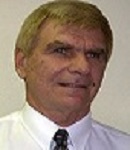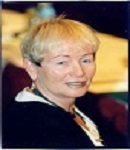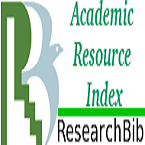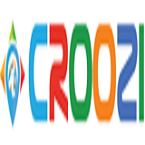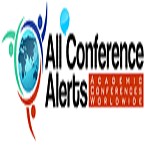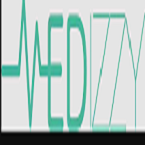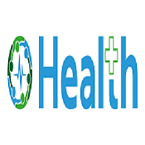Track 01: Neuroplasticity and Aging
Aging affects the whole brain functionality which leads to many psychiatric disorders which mainly includes dementia, cognitive impairment, depression, delirium etc. Mental disorders induce functional disability, disturb rehabilitation, burden the health system and impair life-quality of older patients and their relatives. Neuroplasticity, the brain's ability to reorganize itself by forming new neural connections, plays a crucial role in both learning and recovery throughout life. While it is most prominent in childhood, where the brain undergoes rapid growth and adapts to new experiences, neuroplasticity continues in adulthood and even into older age, albeit at a slower rate. Aging brings several changes to the brain, such as reduced synaptic formation, decreased neurogenesis, and brain shrinkage, all of which can impact the brain's ability to adapt and function efficiently. However, the potential for neuroplasticity remains, offering hope for maintaining cognitive health throughout life. As individuals age, their brains experience natural structural changes that can slow cognitive processing. The reduction in the production of new neurons and the gradual shrinkage of brain regions involved in memory and learning can lead to slower information processing and memory decline. Furthermore, the loss of myelin and changes in neurotransmitter systems can affect cognitive performance, making it harder for older adults to adapt to new information or tasks. Despite these challenges, neuroplasticity does not disappear entirely, and with the right interventions, the brain retains the capacity for change and improvement. Factors like physical exercise, mental stimulation, social engagement, and a healthy lifestyle can significantly enhance neuroplasticity in older adults. Regular physical activity, especially aerobic exercise, promotes blood flow to the brain, stimulates neurogenesis, and boosts levels of brain-derived neurotrophic factor (BDNF), a protein that supports neuron growth. Likewise, engaging in cognitively challenging tasks, maintaining strong social connections, and adopting stress-reduction practices such as mindfulness can all contribute to sustaining or even enhancing neuroplasticity. These activities not only help maintain cognitive function but can also protect the brain against age-related decline and neurodegenerative diseases.
Track 02: Palliative care and End of Life Care
Palliative care is specific therapeutic administered to individuals with genuine ailments. It concentrates on giving help from the side effects and stretch of a genuine sickness. The objective is to enhance personal satisfaction for both the patient and the family. Palliative care is given by an exceptionally prepared and trained group of specialists, nurses, social labourers and different experts who cooperate with a patient's specialists to give a hospice palliative care. It is proper at any age and at any phase in a genuine ailment and can be furnished alongside healing treatment. Palliative care is a specialized medical approach focused on providing relief from the symptoms, pain, and stress of serious illness, regardless of the patient's age or stage of the illness. It aims to improve the quality of life for individuals facing chronic, serious, or life-limiting conditions by addressing physical, emotional, and spiritual needs. Palliative care is not solely for those at the end of life; it can be provided alongside curative treatments and is available at any stage of a serious illness. The goal is to offer comprehensive support to both the patient and their family, helping them navigate difficult decisions and ensuring that comfort is prioritized. End-of-life care is a specific subset of palliative care that focuses on providing compassionate care to individuals in the final stages of life. This type of care is designed to ensure that the patient's remaining days are as comfortable and dignified as possible. End-of-life care encompasses not only the management of physical symptoms such as pain, difficulty breathing, or nausea but also addresses the emotional, psychological, and spiritual needs of the patient and their loved ones. It often involves a team of healthcare professionals, including doctors, nurses, social workers, and chaplains, who work together to support the patient and their family during this challenging time. One of the central principles of both palliative and end-of-life care is patient-centeredness, ensuring that care plans align with the patient’s values, preferences, and goals. This may involve discussions about advance directives, such as living wills or do-not-resuscitate orders, to make sure that the patient’s wishes are respected when they are no longer able to communicate them. Communication between the healthcare team, the patient, and the family is crucial to making informed decisions and providing personalized care that honors the patient's dignity.
Track 03: Aging and Geriatrics
Geriatrics or Geriatric Medicine refers to the medical care for the elderly people whose age is above 65 years. The healthcare professionals who specialize in Geriatric are known as Geriatricians. Geriatricians are board-certified interns or family physicians who have additional training and certification in geriatrics. Aging is a natural biological process that involves gradual changes in the body and mind over time. As individuals age, they experience a decline in various physiological functions, such as muscle strength, bone density, cognitive abilities, and sensory perception. These changes can lead to an increased risk of chronic conditions like arthritis, cardiovascular diseases, diabetes, and dementia. While aging is inevitable, how individuals experience it varies significantly, influenced by factors like genetics, lifestyle choices, and access to healthcare. A focus on healthy aging, which involves staying active, maintaining a balanced diet, and managing stress, can help mitigate some of the challenges associated with getting older. Geriatrics is the branch of medicine that focuses on the healthcare of older adults. It encompasses a comprehensive approach to diagnosing, treating, and managing the unique health issues that arise in aging individuals. Geriatric care often involves addressing multiple chronic conditions simultaneously, managing medications carefully, and providing support for mental health, such as depression or cognitive decline. Geriatricians are specially trained to understand the complexities of aging and aim to enhance the quality of life for older adults by promoting independence, managing symptoms, and improving overall well-being. This field also emphasizes preventive care, encouraging early detection and intervention to help seniors maintain their health for as long as possible.
Track 04: Leading edge in Anti- Aging
Retardation of Aging process is Anti - aging. One can play role in length and quality of your life. The latest emerging technologies in the arena of this field will be discussed. It has led to increase in the longevity and decrease in senescence. Anti- Aging products which mainly include supplements and hormone replacement are globally consumed. The field of anti-aging has evolved significantly over recent years, with advancements in both scientific research and technology offering promising strategies to slow the aging process and promote healthier, longer lives. One of the most exciting developments in anti-aging is the growing understanding of cellular senescence and the role it plays in aging. Senescent cells, which stop dividing and accumulate in tissues over time, contribute to inflammation and tissue dysfunction. Researchers are exploring ways to target and remove these cells, a strategy known as senolytics, in order to rejuvenate tissues and potentially delay age-related diseases. Another key area of research in anti-aging involves the role of telomeres, the protective caps at the ends of chromosomes. As cells divide, telomeres shorten, and this shortening is linked to cellular aging and the onset of age-related diseases. Scientists are investigating ways to extend telomeres or slow their shortening, with some promising therapies involving gene editing and the activation of telomerase, an enzyme that can rebuild telomeres. These breakthroughs offer potential for extending the lifespan of cells and possibly slowing down the aging process at the genetic level. Advancements in regenerative medicine also show great promise for anti-aging. Stem cell therapies, for example, aim to repair or replace damaged tissues and organs by harnessing the body's natural healing abilities. Stem cells have the potential to rejuvenate aging tissues, improve organ function, and even reverse some of the physical effects of aging. These therapies are still in the experimental phase, but they hold significant potential for improving health in older adults and extending longevity.
Track 05: Life Extension Science
Life extension science is the concept of extending the human lifespan, both modestly – thru enhancements in medicine – or dramatically by way of growing the maximum lifespan. The potential to acquire such dramatic modifications, however, does not currently exist. Scientists believe that future breakthroughs in tissue rejuvenation, stem cells, regenerative medicinal drug, molecular repair, gene therapy, pharmaceuticals, and organ replacement (which includes with artificial organs or xenotransplantations) will ultimately allow human beings to have indefinite lifespans via whole rejuvenation to a healthy younger condition. Life extension science is an interdisciplinary field focused on understanding the biological mechanisms of aging and finding ways to extend human lifespan while maintaining health and quality of life. The central goal of life extension science is not merely to increase the number of years lived, but to prolong the period of life in which individuals remain physically and mentally healthy. Researchers in this field investigate a variety of factors, from genetic influences to environmental conditions, that contribute to the aging process. A key area of focus is the identification of the molecular and cellular processes that cause age-related diseases, such as cardiovascular disease, cancer, and neurodegenerative disorders, and finding ways to intervene before these conditions manifest. One promising avenue in life extension science is the study of longevity genes. Certain genes are believed to protect against age-related diseases and extend lifespan, and researchers are working to understand how to activate these genes or mimic their effects. For example, the sirtuin family of genes, involved in cellular repair and metabolism, has been shown to increase longevity in animal models. Another area of interest is the role of metabolic pathways, particularly those related to calorie restriction and autophagy, the body's process of cleaning out damaged cells. Caloric restriction has been shown to extend lifespan in various organisms, and scientists are studying ways to activate these pathways without the need for drastic dietary changes. Stem cell research is another key component of life extension science, with the potential to regenerate aging tissues and organs. Stem cells can replace damaged cells, rejuvenate organs, and possibly reverse some of the effects of aging. The development of therapies to enhance the body's regenerative abilities through stem cell transplantation or the activation of endogenous stem cells is an exciting frontier in extending human healthspan. Additionally, researchers are exploring the role of telomeres, the protective caps at the ends of chromosomes, which shorten as we age. Strategies to preserve or lengthen telomeres could potentially slow the aging process at the cellular level, providing a powerful tool for extending life.
Track 06: Senescence
Senescence is defined as the period when synthetic (anabolic) biochemical process gives way to a degradative (catabolic) process. In general, it is the phenomenon of aging. It is the gradual deterioration of functional characteristics. It is the inevitable fate of all multicellular organisms with germ-soma separation, but it can be delayed. The pattern of Senescence can be Cellular Senescence, Tissue Senescence, Organ Senescence, Organism or Whole plant Senescence. Senescence refers to the process in which cells lose their ability to divide and function properly, often in response to stress or damage. This biological phenomenon is a natural part of aging, and it plays a significant role in the development of age-related diseases. Senescent cells no longer replicate, but they remain metabolically active, releasing inflammatory factors and signaling molecules that can damage neighboring healthy cells. This buildup of senescent cells over time contributes to tissue dysfunction, chronic inflammation, and a decline in the regenerative capacity of organs, which are hallmarks of aging. While cellular senescence serves as a protective mechanism against cancer by preventing the proliferation of damaged cells, its accumulation can be detrimental to the body in the long term. In tissues such as the skin, muscles, and blood vessels, senescent cells contribute to the decline in function and the development of age-related conditions. For example, in the skin, the accumulation of senescent cells can lead to wrinkles and reduced elasticity, while in the cardiovascular system, they contribute to arterial stiffness and the increased risk of heart disease. The presence of these dysfunctional cells has also been linked to neurodegenerative diseases like Alzheimer's and Parkinson's, where they exacerbate cognitive decline. Senescence is not only a cellular process but also a broader biological phenomenon with implications for aging and disease. As research continues to uncover the mechanisms behind cellular senescence, it offers new opportunities for interventions that may help slow the aging process, improve health in older adults, and reduce the burden of age-related diseases.
Track 07: Aging Care Management
Aging care services are holistic, client-centred approach to caring for older adults or others facing on-going health challenges. Working with families, the expertise of Palliative Care provides the answers at a time of uncertainty. Their guidance leads families to the actions and decisions that ensure quality care and an optimal life for those they love, thus reducing worry, stress and time of work for family caregiver through individual health professionals. Aging care management refers to the process of coordinating and overseeing the healthcare and support services for older adults to ensure they receive comprehensive, personalized care that meets their physical, emotional, and social needs. As individuals age, they often face a range of challenges, including chronic health conditions, mobility issues, cognitive decline, and difficulty managing daily activities. Aging care management seeks to address these challenges by providing a holistic approach to care that promotes independence, enhances quality of life, and ensures that elderly individuals receive the appropriate care at the right time. Aging care managers, often licensed healthcare professionals such as nurses, social workers, or gerontologists, play a critical role in this process. They work closely with the elderly individual, their family members, and healthcare providers to develop a tailored care plan. This plan may include a combination of medical care, home health services, physical therapy, social support, and assistance with activities of daily living (ADLs) such as bathing, dressing, and meal preparation. Care managers also assist with coordinating medical appointments, medication management, and advocating for the patient’s needs within the healthcare system. In addition to addressing the immediate healthcare needs of older adults, aging care management also focuses on long-term planning. This includes providing support for issues such as estate planning, financial management, and the exploration of housing options, such as aging in place at home, moving to an assisted living facility, or transitioning to skilled nursing care. A key goal is to ensure that older adults receive care in an environment where they feel comfortable and can maintain as much autonomy as possible.
Track 08: Nutrition and Healthy Aging
Healthy food and healthy lifestyle leads to healthy aging. It helps in increasing the lifespan of humans. Intake of proper nutrients in diet helps us in attaining a better life at each stage of life. It has been found that people over the age of 65 years of age are either under-nourished or over- nourishedNutrition plays a critical role in promoting healthy aging, as the right diet can help older adults maintain their physical health, cognitive function, and overall quality of life. As individuals age, their nutritional needs change due to factors like slowed metabolism, reduced appetite, and changes in how the body absorbs and processes nutrients. Proper nutrition can help prevent or manage chronic conditions such as heart disease, diabetes, and osteoporosis, while also supporting the immune system and maintaining muscle mass, which tends to decline with age. A balanced diet rich in essential vitamins, minerals, and antioxidants is key to managing the aging process and enhancing longevity. A well-rounded diet for older adults should include a variety of nutrient-dense foods. For example, protein is essential for maintaining muscle mass, and older adults often require higher amounts to prevent sarcopenia (muscle loss). Foods like lean meats, fish, eggs, legumes, and dairy products are excellent sources of protein. Additionally, healthy fats, such as those found in nuts, seeds, avocados, and olive oil, support heart health and cognitive function. Whole grains, fruits, and vegetables provide fiber, vitamins, and minerals, all of which are vital for digestion, immune function, and preventing chronic illnesses. In particular, certain nutrients become even more important as individuals age. Calcium and vitamin D are critical for bone health, helping to prevent osteoporosis and fractures. Omega-3 fatty acids, found in fish like salmon and in supplements, support brain health and reduce inflammation, which is linked to many age-related diseases. Antioxidants, such as vitamins A, C, and E, protect cells from oxidative damage and support skin health, immune function, and cognitive well-being. Hydration is also essential for healthy aging, as the sense of thirst diminishes with age, increasing the risk of dehydration.
Track 09: Aging and Clinical Trials
Clinical trials are one of the most advanced sciences in the domain of aging research. A clinical trial is a specific kind of research study performed in individuals which undergoes for assessing a restorative, surgical, or behavioural mediation. Most clinical trials test some other treatment, similar to another medication or eating routine or therapeutic gadget (for instance, a pacemaker) as a technique for treating a wellbeing issue. Other clinical trials test approaches to discover an ailment before there are even manifestations physically. A clinical trial may likewise take a gander at how to improve life for individuals living with an existence which involves undermining illness or a ceaseless wellbeing issue. Clinical trials sometimes concentrate on the part of parental figures or care groups. linical trials play a pivotal role in advancing our understanding of aging and developing new treatments to address the unique health challenges that come with it. As the global population continues to age, clinical trials focused on older adults have become increasingly important in the pursuit of improving health outcomes, extending lifespan, and enhancing quality of life in later years. These trials often explore new therapies, drugs, and interventions aimed at treating age-related conditions like Alzheimer's disease, osteoarthritis, cardiovascular disease, and frailty, as well as preventing premature aging and slowing down the aging process itself. One of the key challenges in aging-related clinical trials is that older adults often experience multiple, complex health issues simultaneously, making it difficult to create one-size-fits-all solutions. Clinical trials targeting aging-related diseases must carefully consider factors like polypharmacy (the use of multiple medications), underlying health conditions, and the physiological changes that occur with age. Additionally, older adults may face barriers to participating in clinical trials, such as mobility issues, cognitive decline, or lack of access to trial sites. Ensuring that clinical trials are accessible and inclusive for this population is crucial to obtaining reliable results that can benefit the aging community. The results of clinical trials in aging have the potential to revolutionize how we approach aging and age-related diseases. Through these studies, researchers can identify promising therapies, refine treatments, and establish evidence-based practices for improving the health of older adults. As more trials are conducted, the hope is that aging itself can be treated as a manageable process, enabling individuals to live longer, healthier lives with a better quality of life.
Track 10: Evolution of Aging
The transformative hypothesis of ageing offers a hypothetical structure that clarifies many, maybe most, perceptions and remains a noteworthy hypothetical point of interest in Gerontology. The hypothesis offers pieces of information with regards to the developmental systems and the occasions prompting the advancement of ageing, yet it doesn't offer an entire picture on the advancement of ageing across various species. Additionally, the transformative hypothesis of ageing can be destructive by forcing confinements on Ageing Studies. The way things are, the developmental hypothesis of ageing can't be securely used to make expectations on the biology of ageing. Transformative hypotheses of maturing are not prescient, they are spellbinding. For example, it has been opposed that non-ageing creatures, particularly those that increase size and productivity with age, might be supported by normal determination, accordingly negating the established developmental hypothesis of ageing. In species with a high infant mortality and long age times, a grown-up creature (adult animal) is valuable and worth protecting; if conceptive yield increases with age, characteristic determination will support conservation instead of quick generation. The concept of aging has been shaped by evolutionary biology, which suggests that aging is not an inherent flaw, but rather a byproduct of evolutionary processes. From an evolutionary standpoint, the primary goal of an organism is to survive long enough to reproduce and pass on its genes. Once reproduction has occurred, natural selection exerts less pressure on the organism, which is why many age-related changes, such as cellular degradation and the onset of age-related diseases, occur after an organism has reproduced. This phenomenon is referred to as the "disposable soma theory," which posits that the body is essentially designed for reproduction and not for longevity beyond that point. Over time, scientists have also explored the genetic factors that contribute to aging. One important concept in this context is the role of longevity genes. In some organisms, such as certain species of fish or worms, specific genes have been identified that can extend lifespan and delay the onset of age-related decline. These discoveries have led to greater interest in understanding how these genes may operate in humans and whether they can be manipulated to slow the aging process. For example, research into genes involved in DNA repair, oxidative stress, and cell division has revealed potential targets for interventions that may slow aging or even reverse some aspects of it. While much of this research is still in its early stages, it represents a new frontier in understanding aging from an evolutionary perspective.
Track 11: Aging Care Services
More than one in four American adults, according to a 2009 AARP survey, have become family caregivers to aging loved ones with chronic conditions. Of those caregivers, many spend, on an average, nearly 20 hours a week in addition to an outside job for caring about their elderly parents. Geriatric Care givers provide the required services for the elderly people. Aging care services are essential for supporting older adults as they navigate the physical, emotional, and social challenges that often come with aging. These services encompass a wide range of healthcare, personal assistance, and social support tailored to the unique needs of seniors. As people age, they may experience declines in mobility, cognitive function, and the ability to perform activities of daily living (ADLs), such as bathing, dressing, and cooking. Aging care services are designed to provide help in these areas, allowing older individuals to maintain their independence and quality of life while also ensuring they receive the necessary care. One of the most common types of aging care services is home care, which involves sending trained caregivers to assist seniors in their own homes. Home care services can be as simple as help with household tasks and companionship or as complex as medical care provided by nurses or physical therapists. This allows older adults to age in place, staying in a familiar environment while receiving the support they need. Home care services can also be adapted to meet a wide range of needs, from short-term assistance following surgery to long-term care for chronic conditions. For those who require more intensive care or cannot live independently at home, assisted living and nursing homes offer more structured environments. Assisted living facilities provide support with daily activities such as medication management, meal preparation, and personal care, while still allowing residents a certain degree of autonomy. Nursing homes, on the other hand, are typically for individuals who require around-the-clock medical care due to serious health conditions or advanced stages of aging. Both options offer specialized care designed to meet the evolving needs of older adults, and families can choose the level of care that best suits their loved ones.
Track 12: Stress and Skin Disorders
The Dermatological states are intimately related to stress. Stress can influence, reveal or even exacerbate a number of skin disorders, including alopecia, seborrheic dermatitis, psoriasis, atopic dermatitis, pruritus, herpes, lichen planus, rosacea and urticarial. On the other hand, the skin disease itself could induce a secondary stress for the patient, influencing his or her quality of life. tress is a common trigger for a variety of skin disorders, influencing both the onset and severity of conditions like acne, eczema, psoriasis, and rosacea. When the body is under stress, it produces higher levels of the hormone cortisol, which can increase oil production in the skin and lead to clogged pores, ultimately causing breakouts or worsening existing acne. Stress can also weaken the skin's natural barrier function, making it more susceptible to irritation, dryness, and inflammation. For individuals with pre-existing skin conditions, such as eczema or psoriasis, stress can exacerbate symptoms, leading to flare-ups, itching, redness, and discomfort. In addition to hormonal changes, stress can affect the immune system, further complicating skin health. The body's inflammatory response, triggered by chronic stress, can lead to increased levels of pro-inflammatory cytokines, which contribute to skin conditions like eczema and rosacea. Stress can also cause a disruption in the gut-skin connection, where imbalances in the gut microbiome can manifest in skin issues. Conditions like acne and psoriasis are often linked to an imbalance in the gut, and stress can exacerbate this by negatively impacting digestion and gut health. The psychological effects of stress can also influence the skin, leading to habits such as picking or scratching, which can worsen conditions like acne or eczema. Additionally, stress can interfere with sleep, and poor sleep quality is known to have a detrimental effect on skin health. Lack of sleep can impair the skin’s ability to repair itself, leading to dullness, fine lines, and increased sensitivity. Over time, chronic stress and its impact on skin health can create a vicious cycle, where skin problems lead to more stress, which, in turn, worsens the skin condition.
Track 13: Aesthetics and Rejuvenation
As indicated by insights of the American Society for Aesthetic Plastic Surgery, 84,685 patients beyond 65 years of age searched out plastic surgery techniques in 2010. Of that number, more than 26,000 had confronted to having undergone lifts, almost 25,000 had cosmetic eyelid surgeries, 6,400 underwent liposuction and more than 5,800 had bosom reduction. Fewer patients likewise decided on face lifts, bosom lifts and bosom enlargements. Those numbers have been on a relentless increment for a long time, as per specialists. Aesthetics and rejuvenation have become central to modern beauty and wellness practices, as people seek to maintain or restore a youthful appearance while enhancing their overall well-being. Aesthetics focuses on improving the visual appeal of the face and body through both non-invasive and surgical methods, while rejuvenation aims to reverse or slow down the signs of aging, such as wrinkles, fine lines, sagging skin, and age spots. Over the years, the field of aesthetics has expanded, offering a wide range of treatments that cater to diverse needs, from enhancing facial features to restoring skin vitality and texture. One of the most popular aesthetic treatments is Botox and dermal fillers, which are non-surgical procedures designed to reduce the appearance of wrinkles and restore volume to areas of the face that have lost fullness with age. Botox works by temporarily relaxing the muscles that cause wrinkles, while dermal fillers restore lost volume, plumping up areas such as the cheeks, lips, and under-eye region. These treatments provide a youthful appearance without the need for surgery and have become widely accessible due to their minimal downtime and relatively low cost. In addition to injectables, a variety of skin treatments and therapies have gained popularity for rejuvenation. Laser treatments, such as fractional CO2 lasers or IPL (intense pulsed light), target skin concerns like hyperpigmentation, fine lines, and acne scars by stimulating collagen production and promoting skin renewal. Chemical peels and microneedling are also common methods that help to exfoliate the skin, remove damaged cells, and encourage cell regeneration. These procedures improve skin texture, tone, and elasticity, resulting in a smoother, more youthful appearance.
Track 14: Mechanisms of Aging
Genetics of aging is generally concerned with life extension associated with genetic alterations, rather than with accelerated aging diseases leading to reduction in lifespan. The role of genetics in determining life-span is complex and paradoxical. Although the heritability of life-span is relatively minor, some genetic variants significantly modify senescence of mammals and invertebrates, with both positive and negative impacts on age-related diseases and life-spans. Aging is a complex, multifactorial process that involves various biological mechanisms that gradually lead to a decline in the function of cells, tissues, and organs. Several theories have been proposed to explain how and why aging occurs, and while no single explanation can fully account for the process, a combination of factors contributes to the aging phenomenon. One of the primary mechanisms of aging involves the accumulation of cellular damage over time. This damage can be caused by environmental factors, such as UV radiation and pollution, as well as by internal processes like oxidative stress. Free radicals, which are highly reactive molecules produced as byproducts of metabolism, damage cellular structures such as DNA, proteins, and lipids, leading to dysfunction and, ultimately, cell death. Another key mechanism of aging is telomere shortening. Telomeres are protective caps at the ends of chromosomes that prevent them from deteriorating or fusing with other chromosomes. Each time a cell divides, its telomeres shorten, and eventually, the telomeres become too short to protect the chromosomes, leading to cellular senescence or apoptosis (programmed cell death). This process limits the number of times a cell can divide, contributing to the aging of tissues and organs. In this context, telomere shortening is linked to age-related diseases such as heart disease, cancer, and neurodegenerative disorders. Mitochondrial dysfunction is also a critical mechanism in aging. Mitochondria are the powerhouses of the cell, responsible for producing energy in the form of ATP. As individuals age, mitochondrial function declines, leading to reduced energy production and increased production of reactive oxygen species (ROS), which cause oxidative damage to cells. This mitochondrial dysfunction accelerates the aging process and is associated with a range of age-related conditions, including muscle weakness, cognitive decline, and metabolic disorders.
Track 15: Longevity and Medicine
Traditional and Regenerative medicine is mainly concentrates on the longevity of life by developing the anti-aging medicine. Customary drug includes restorative parts of conventional information that created over eras inside different social orders before the time of cutting edge prescription. The World Health Organization (WHO) characterizes conventional solution as "the whole of the learning, abilities, and practices in view of the speculations, convictions, and encounters indigenous to various societies, whether logical or not, utilized as a part of the upkeep of wellbeing and also in the avoidance, conclusion, change or treatment of physical and emotional instability. Longevity, or the ability to live a long and healthy life, has been a central focus of medicine throughout history. With advancements in medical science, humans are living longer than ever before, and the field of medicine continues to explore ways to not only extend lifespan but also enhance the quality of life in later years. As the global population ages, the emphasis has shifted from simply treating diseases to promoting healthy aging and preventing the onset of age-related conditions, such as heart disease, diabetes, and neurodegenerative disorders. The integration of preventative healthcare, early diagnosis, and personalized treatment plans has made it possible for individuals to live longer, healthier lives. One of the key factors influencing longevity is the advancement of medical technologies that allow for earlier detection and better management of chronic diseases. Innovations such as improved diagnostic tools, genetic testing, and advanced imaging techniques have made it possible to identify health risks before they develop into serious conditions.
